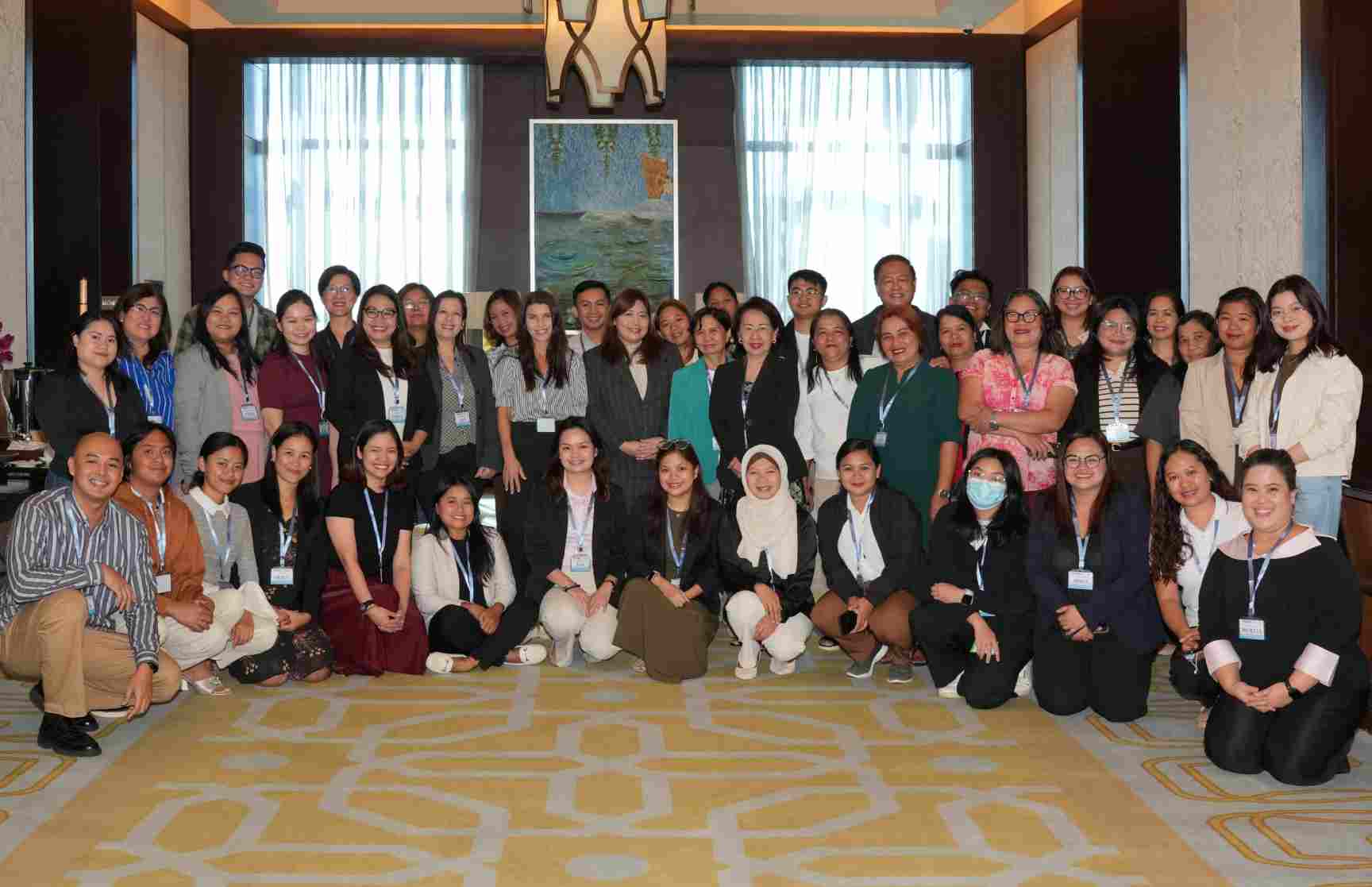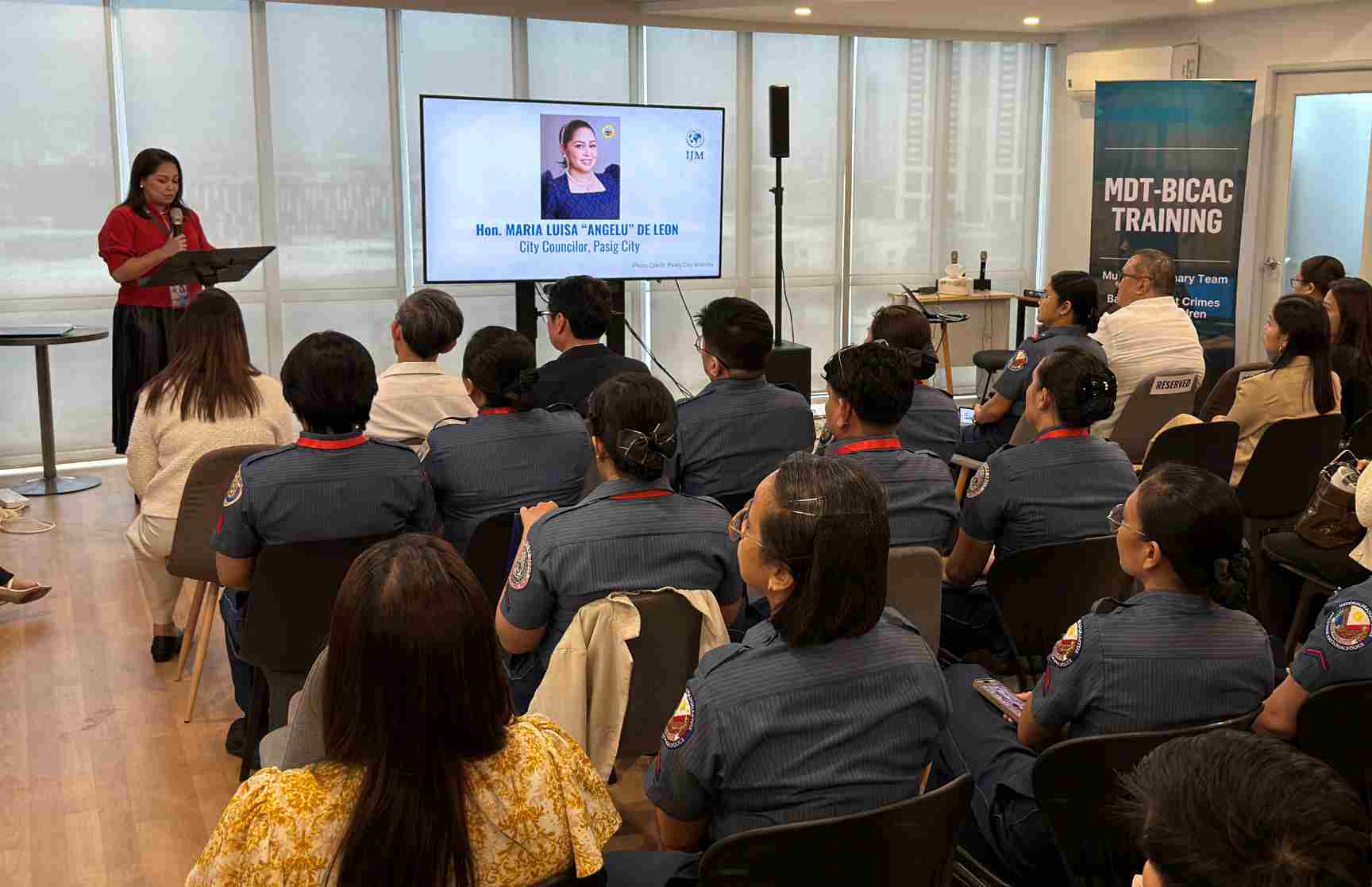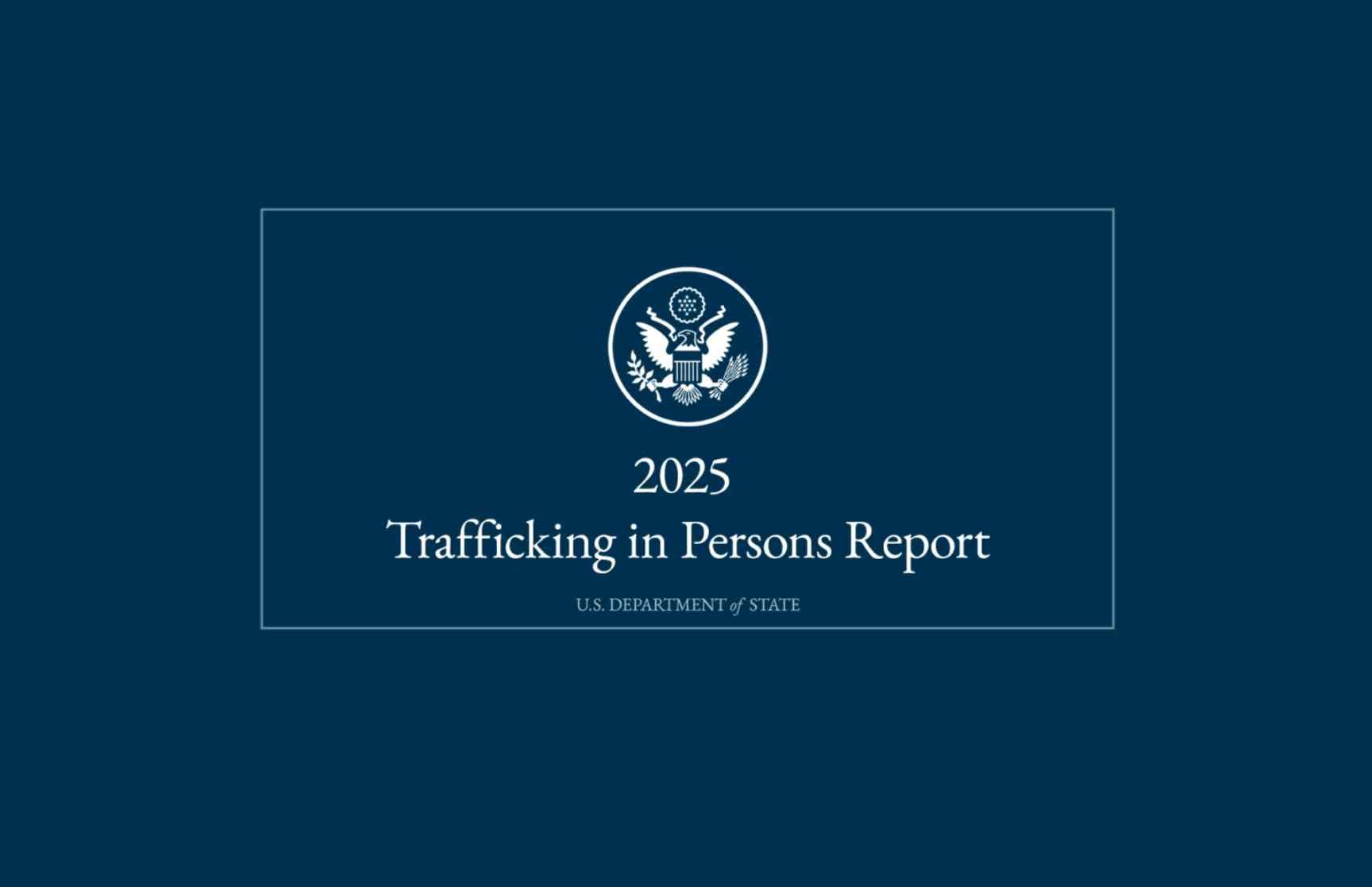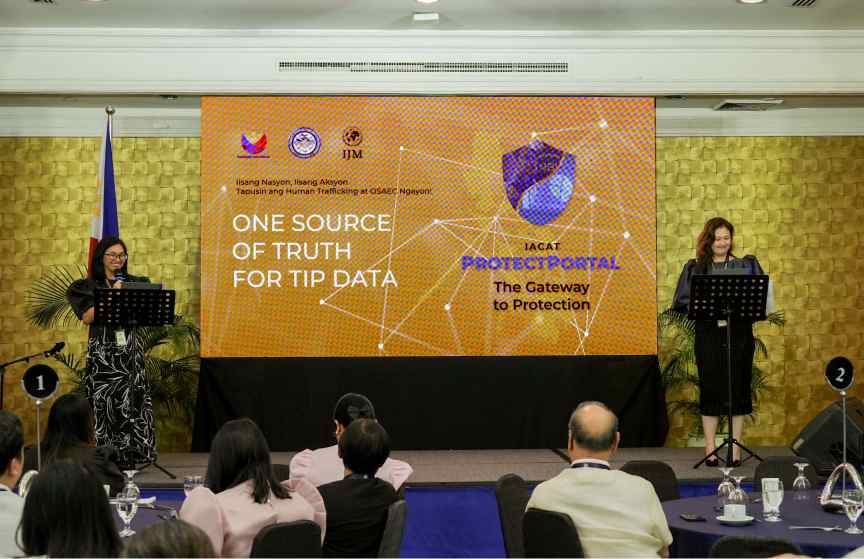
A milestone in survivor restoration
On June 24, 2024, the Department of Social Welfare and Development (DSWD) finalized the institutionalization of the Assessment of Survivor Outcomes (ASO) tool developed by International Justice Mission (IJM).
The ASO tool is the first and only globally validated assessment tool designed specifically for trafficking survivors. Its institutionalization advances the desired standard for survivor care across the country.
Justice is not truly achieved until survivors are fully restored.
The ASO Tool: a wholistic approach to survivor restoration
At IJM, we define restoration as the point at which a survivor can function in society with low vulnerability to revictimization. This definition underscores the importance of not just rescuing survivors but ensuring they are fully restored and can reintegrate into their communities safely and sustainably.
Restoration is when a survivor can function in society with low vulnerability to revictimization.
The ASO Tool measures survivor progress across six key domains that are critical to achieving full restoration: Safety, Legal Protection, Mental Wellbeing, Economic Empowerment and Education, Social Support, and Physical Wellbeing.
Each domain was developed through an extensive process that included a comprehensive review of international literature, consultations with over 73 IJM case managers across nine countries, and input from 25 subject matter experts from eight countries, including the Philippines.
Dolores Rubia, Director of National Aftercare Development at IJM says:
Utilizing a validated and reliable tool like the ASO is not just beneficial; it’s crucial. It will significantly enhance the case management practices of social workers in the Philippines, leading to better outcomes for survivors of violence and exploitation.
IJM makes the ASO Tool available to interested parties without a fee, reflecting the organization’s belief that it is a critical tool for measuring survivor outcomes. Interested parties are required to sign a user agreement to ensure proper usage, and a web-based training and guidance manual are available to accompany the tool.
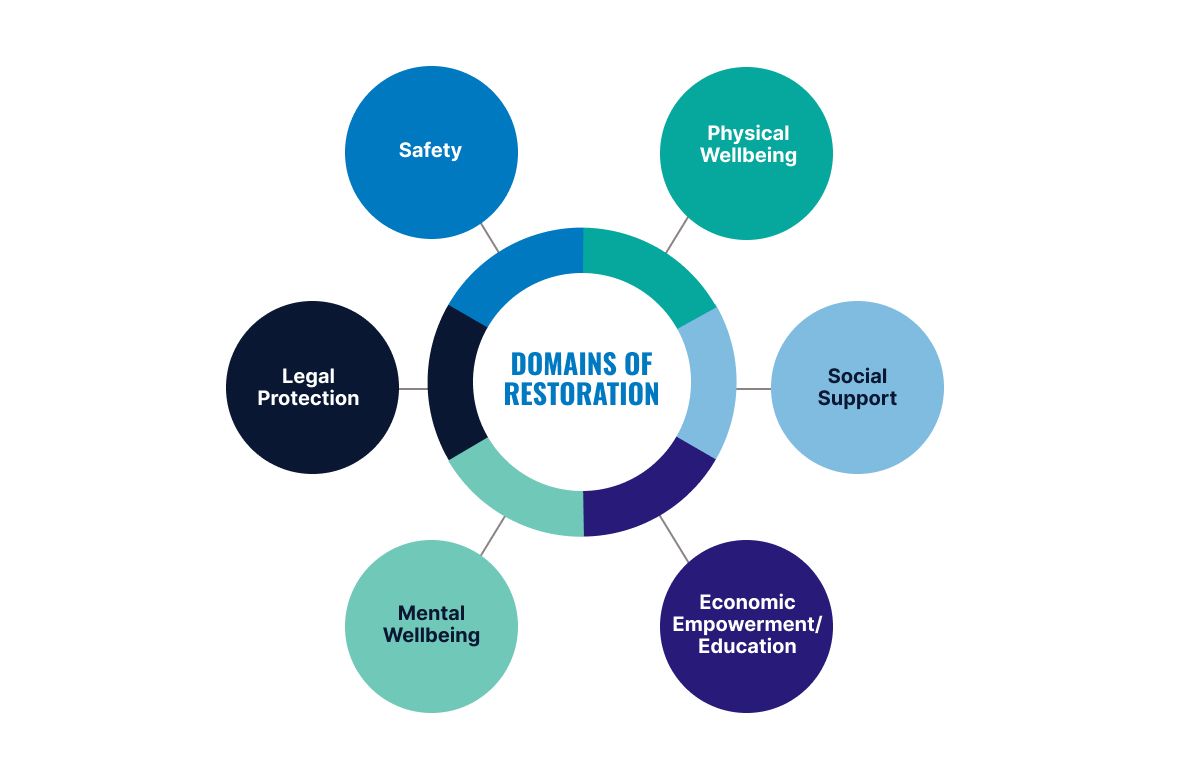
Each of these domains plays a vital role in the holistic restoration of survivors. To date, 374 survivors have been assessed and marked as restored using the ASO Tool, demonstrating its effectiveness in guiding survivors on their journey to recovery.
The validation process: ensuring reliability and accuracy
The first version of the ASO Tool was developed in 2012. The validation process began in 2015. IJM undertook a two-part validation study to assess the tool’s effectiveness in providing an accurate picture of survivor progress toward restoration. This process, which concluded in 2017, confirmed that the ASO Tool is both reliable and usable for measuring survivor outcomes.
A revised version of the tool was developed in 2018. This version has been used by more than 200 social workers across every region in the Philippines, receiving overwhelmingly positive feedback.
The rigorous journey to institutionalization
The journey to institutionalize the ASO Tool was a complex, three-year process that required collaboration, persistence, and a shared commitment to improving survivor care. The process began with recommendations from the Inter-Agency Council Against Trafficking (IACAT) and the Inter-Agency Council Against Child Pornography (IACACP), which were instrumental in endorsing the tool to the DSWD.
David Wilkinson, IJM’s Lead Innovation Strategist, described the journey as a “mammoth effort” that involved numerous discussions, reviews, and revisions. The proposal underwent multiple rounds of scrutiny by the DSWD’s Management Committee (ManCom) and was reviewed by all 16 regional Heads of Department. Each round of review brought new questions and comments, requiring further refinement of the proposal.
The rigor of the process reflects our government’s commitment to pursuing the best systems and tools for nationwide implementation. On June 24, 2024, the DSWD Executive Committee (ExeCom) approved the ASO Tool, officially endorsing it for use by licensed and accredited organizations across the Philippines.
The importance of institutionalization
Before this institutionalization, many social workers faced barriers to utilizing the tool, primarily because it was not formally recognized by regulatory bodies. These barriers often included difficulties in obtaining formal approval and integrating the tool into regular practice.
These barriers have now been addressed, enabling more widespread use of the tool across the country. This institutionalization ensures that social workers now have access to a standardized, reliable method for assessing survivor strengths and vulnerabilities, leading to better outcomes for survivors.
Wilkinson emphasized the significance of this development, stating:
Prior to the institutionalization of the ASO, DSWD did not have a standardized, reliable method for helping social workers objectively assess survivors’ strengths and vulnerabilities. Now they will.
Providing the best for survivors
The journey to institutionalization was long and challenging, but the outcome is undeniably worth the effort. The ASO Tool sets a new standard of excellence in survivor care. It empowers the government to understand the factors that contribute to restoration and provides meaningful feedback on whether interventions are effective.
 Stock photo. These children are not victims/survivors.
Stock photo. These children are not victims/survivors.
The ASO Tool sets a new standard of excellence in survivor care
With the DSWD’s adoption of the ASO Tool, it becomes available to more local government units (LGUs) that need it. But more importantly, the ultimate beneficiaries of this tool are the survivors themselves. The ASO Tool ensures that they receive the highest standards of care, enabling them to rebuild their lives and reintegrate into their communities with reduced vulnerability to further victimization.
The ASO Tool ensures that they receive the highest standards of care, enabling them to rebuild their lives and reintegrate into their communities with reduced vulnerability to further victimization.
Scaling protection and strengthening the justice system
At IJM, the belief is that the justice system is responsible for upholding its duty to protect, assist, and connect victims of violence and crime to services that empower them toward safety and stability. This includes crisis intervention, legal assistance during the criminal justice process, and access to restorative services for long-term recovery.
The ASO Tool helps the justice system fulfill this responsibility. By tracking the restoration of survivors, the tool provides critical data that can be used to scale protection and improve survivor care. As IJM continues to partner with governments and NGOs, the ASO Tool will be instrumental in building more robust data and strengthening the overall justice system.
The ASO Tool empowers social workers, strengthens the justice system, and, most importantly, provides survivors with the support they need to rebuild their lives and thrive in their communities.




